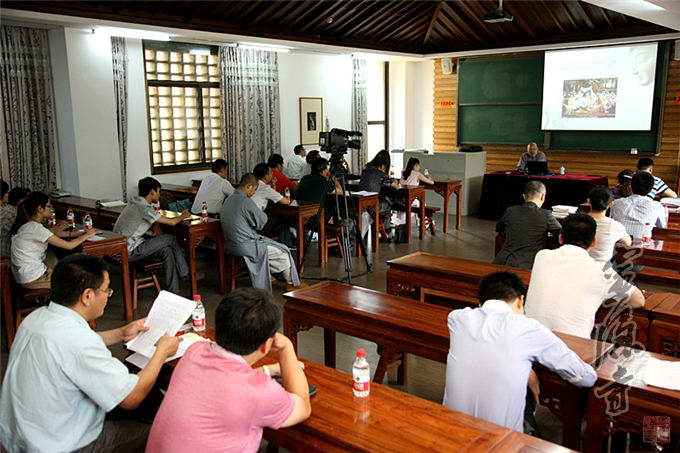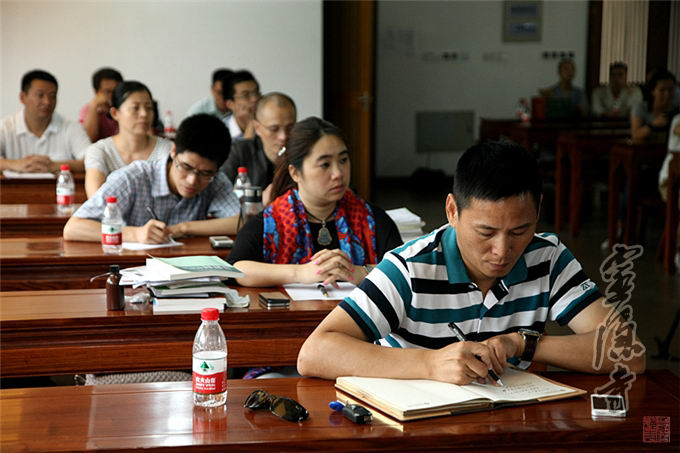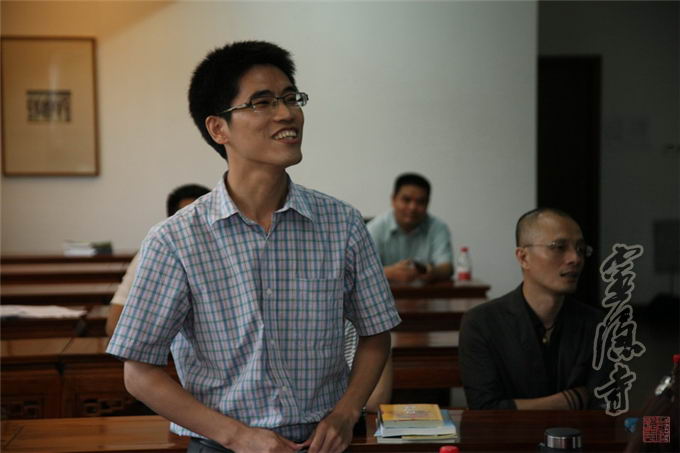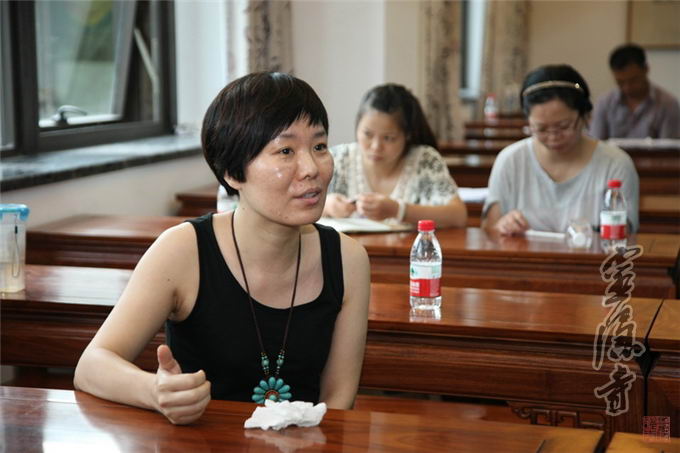
The first lecture of Cultural Talk Series for the Zhejiang Association of Young Entrepreneurs
On 2 August 2013, the Cultural Talk Series for the Association of Young Entrepreneurs in Zhejiang took off in Hangzhou Buddhist Academy. Abbot Venerable Guangquan from Lingyin Temple was invited to answer questions, clear confusions and explain the significance of Buddhism in practical life to more than thirty young entrepreneurs.

Abbot of Lingyin Temple during the first lecture of the Cultural Talk Series for Zhejiang Association of Young Entrepreneurs
Venerable Guangquan introduced to the entrepreneurs the origin and history of Buddhism, and elaborated on the development of Buddhism. He discussed kinds of wisdom and skillful means, as well as lessons from them in relation to contemporary business people.
Firstly, entrepreneurs do not only work just for money, but for the salvation of all sentients too. Prosperous business provides employment for many, and brings happiness to their families. If business falls, its employees would suffer, which would in term affect the harmony of their family life, even the social stability. Therefore, entrepreneurs save all sentients just like Buddhist monastics do, only in a different way.

Entrepreneurs eagerly listening to the lecture and taking notes
Secondly, Confucius traveled from country to country with his disciples to spread his philosophy, while Sakyamuni preached Buddhism for as long as 49 years throughout his life. Both established their unique spiritual “brands” that have been influential throughout thousands of years. Contemporary entrepreneurs should learn from their stamina with which these masters spread and maintained their “branded products (doctrines)”.

Young entrepreneur Raising questions about Buddhist doctrines related to everyday issue
Lastly, the continuity of corporations should be ensured by innovative ways instead of using conservative ways. Chan Buddhism, for instance, was initially only passed on through a single line from master to disciples. This way of inheritance was reformed during the time of Master Huineng, the Six and Last Patriarch of Chan Buddhism, who proposed that anyone with recognition from the Patriarch can establish his or her own school, which led to the prosperity of Buddhism with its five branches. To develop companies into business with long-term prospects, entrepreneurs need to be open-minded, and discard the narrow-minded familism while choosing their business heirs.

Young entrepreneur Raising questions about Buddhist doctrines related to everyday issues
Some entrepreneurs raised the question of what ?ik?ā (?īla, the precepts, the practice of the body; Samādhi, the practice of the mind; and Prajñā, wisdom) means for business people. Venerable Guangquan answered as follows: ?īla,, or the precepts, requires that everyone holds a bottom line, from which persistence and stamina, or Samādhi , would arise. Prajñā would emerge by itself at last, bringing sensitivity and judgment in business, and eventually great success. In terms of the reading of Buddhist sutra, the Venerable suggested that the audience read more classics such as the Diamond Sutra, which is written in relatively plain language close to contemporary Chinese. It is easy to understand and it would help cultivate true belief. It is discouraged to read interpretations of Buddhist sutras from online resources given that the cyber world nowadays is increasingly complicated and its sources not entirely reliable.
Throughout the talk, the atmosphere was solemn, and the audience was enthusiastic to interact with the speaker and to raise questions. The Venerable preached with, and everyone benefited properly from the event in his or her own way.